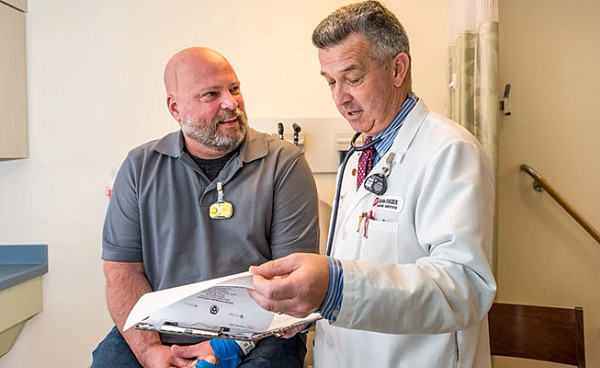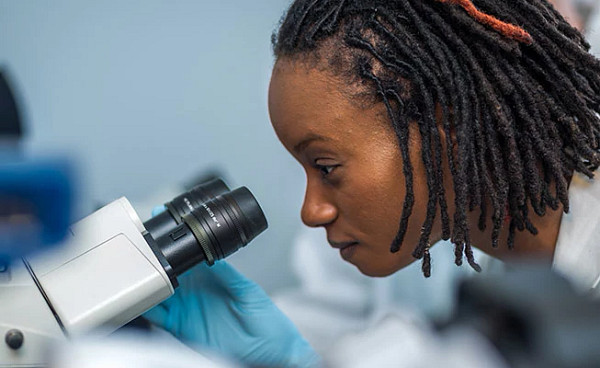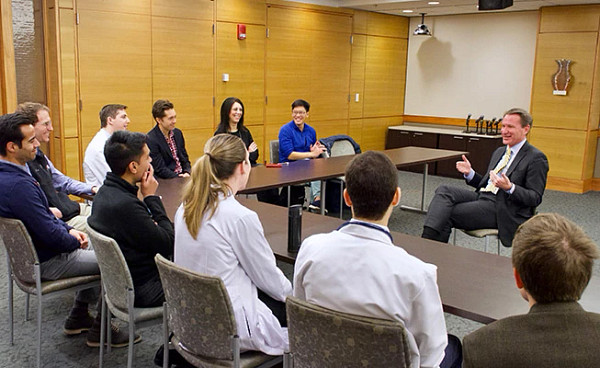Integration and Collaboration
With more than 240 faculty members, the Department of Medical Oncology at Dana-Farber spans:
- 19 comprehensive clinical divisions and programs
- Three interdisciplinary basic science/research divisions
- More than 70 independent research laboratories
- Community-based research program
- Harvard Medical School clinical fellowship program
The department provides a framework in which basic scientists, translational researchers, clinical investigators, and clinicians can pool their efforts as a team to make significant advances in understanding the pathogenesis and pathophysiology of different cancers, and on designing novel therapies for cancer.
The synergy among basic investigation, clinical research, translational development, and cancer care is a fundamental characteristic of the department – connecting basic research to significant clinical challenges, and allowing clinical observation to inform the work at the lab bench.
View the Department of Medical Oncology's 2021 Annual Report
Research and Care Within — and Across — Disease Boundaries
The Department of Medical Oncology provides compassionate clinical care for patients with cancer; conducts transformative basic, translational, and clinical research; and provides leading education, training, and mentorship in cancer medicine.
The Department of Medical Oncology recruits disease-oriented researchers who can conduct outstanding basic or clinical research as well as participate in the clinical activities of a particular clinical center. As a result, there is substantial expertise within the department for specific cancers and oncogenes, as well as for interdisciplinary areas such as molecular and cellular oncology, precision cancer medicine, early drug development, immuno-oncology, population sciences and genetics, and research and clinical informatics.
The clinical division concept provides a structure within which clinicians, clinical scientists, and basic investigators can collaborate to study a single disease. However, the evolving and revolutionary changes in our understanding of the genetic drivers of cancer compels our department to build bridges across disease divisions.
Most of our department members engage in more than one mission area. Nearly all laboratory-based principal investigators also see patients in a clinical division – many also attend on inpatient services. And most clinical investigators have ties to one or more basic research laboratories or disease programs within Dana-Farber/Harvard Cancer Center (DF/HCC). The clinician-scientist model results in increased academic productivity for Medical Oncology.
All of our faculty collaborate with external institutions and serve on national and international oncology committees and steering groups. Our members actively contribute service and leadership, providing an open two-way conduit for expertise that benefits the institute and the broader oncology and health care communities. The desire to improve care for real patients motivates our faculty to expand boundaries and mold healthcare policy, reaching outward to optimize healthcare standards locally and nationally.
Future Directions
The department's plans for the future include clinical and research initiatives such as:
- Seamlessly incorporating 21st century technology into clinical trials and health care to improve patient outcomes
- Engaging new clinical and research faculty with complementary areas of expertise
- Accelerating development of precision medicine, combination therapies, and germline testing of cancer patients
- Creating cancer care equity by broadening access to care for vulnerable and underserved patient populations across the spectrum of cancer-related disease
- Developing strategies to precisely target and predict response and resistance to therapies, either singly or in combination, and either rationally or through testing of patient derived models
- Preventing cancer by making the new technology that we discover widely available
- Expanding survivorship services


